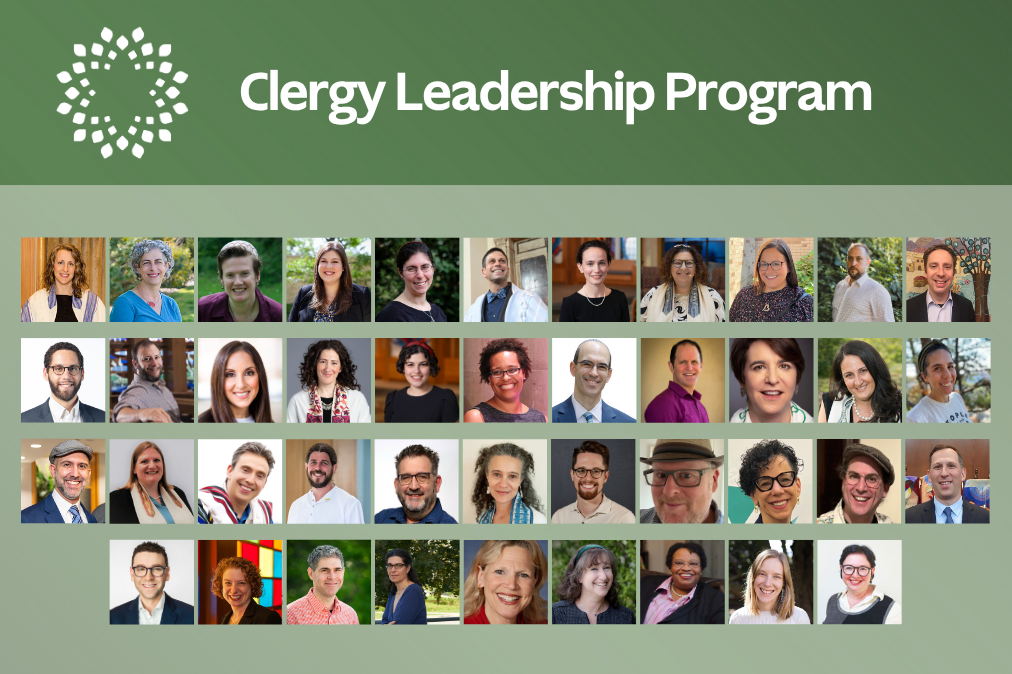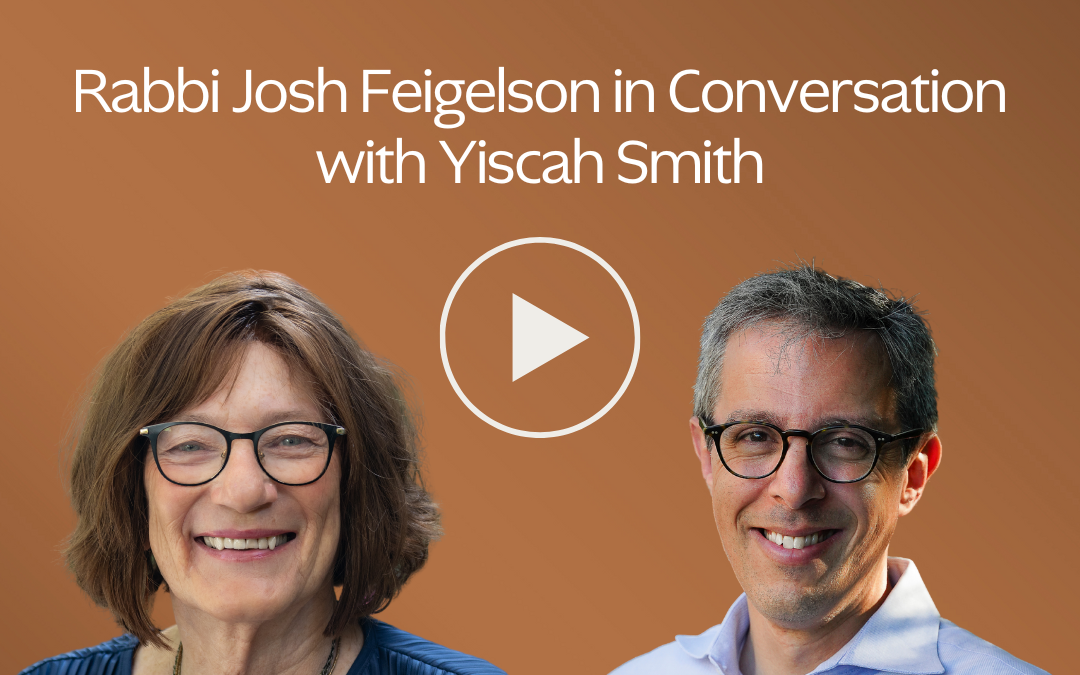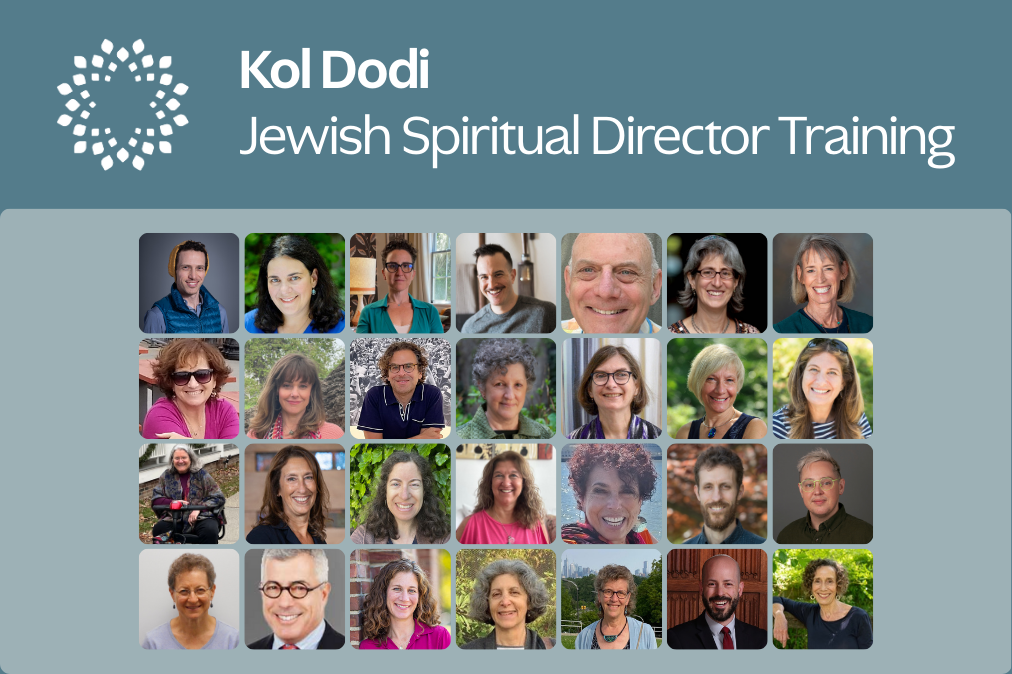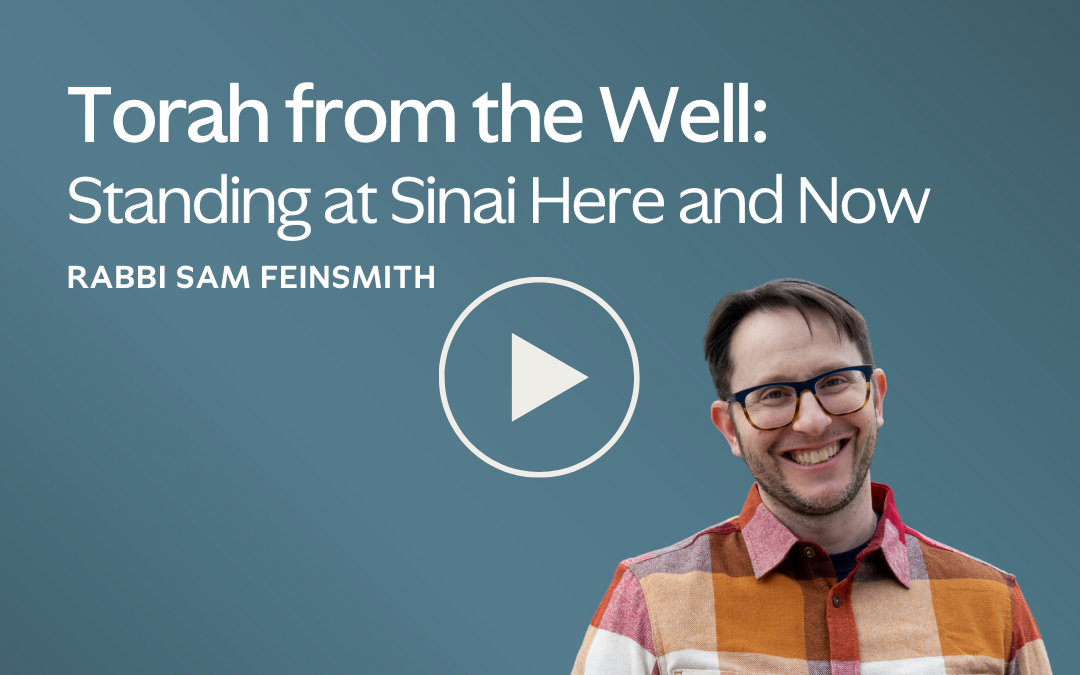
Rabbis, Cantors, and Kohanot Seek Spiritual Renewal in Mindful Practice
Announcing the 2025-2026 Cohort of the Institute for Jewish Spirituality’s Clergy Leadership Program

On July 20, 42 Jewish spiritual leaders from around the world will gather at the Pearlstone Retreat Center to meditate, pray, sing, study, and practice mindful movement, kicking off the Institute for Jewish Spirituality (IJS) 2025-2026 Clergy Leadership Program (CLP).
With nearly 600 alumni now bringing mindfulness practices to synagogues, campuses, schools, organizations, and communities throughout the country, IJS’s flagship course has been reshaping the landscape of American Judaism—one “mindful moment” at a time.
The clergy of the CLP will spend the next 18 months together, in person and on Zoom, learning and practicing a variety of Jewish spiritual practices grounded in mindfulness in a supportive community of practice. The goal is to nurture their spiritual lives, foster greater calm and resilience, and expand their skills in cultivating consciousness and character in their leadership. They’ll also learn to embody mindful Jewish spiritual practice in their communities, fostering greater spirituality and wellbeing for everyone.
One of the cohort members, a freelance rabbi and community builder, looks forward to “being able to have a stronger mindfulness practice—to ground me, to allow me to embrace the magic, to help others to do the same.” This program, she says, would provide connection, structure, and a vessel for growth for me as I create the next season of my rabbinic work and life.”
A wide spectrum of leadership
The 2025 cohort includes an array of ordained rabbis, cantors, and kohanot (Hebrew priestesses) in positions of spiritual leadership—as synagogue clergy, educators, Hillel professionals, activists, ritualists, executives, and entrepreneurs. They span the denominational spectrum and serve communities across the U.S., Israel, and Europe.
The Institute for Jewish Spirituality celebrates the diversity of this group, which includes Jews of Color, Mizrachi and Sephardic Jews, LGBTQ+ folks, people with disabilities, and individuals with a range of political perspectives.
The program will include affinity groups led by faculty who hold each identity, and will feature an updated curriculum incorporating more teachings from people with historically marginalized identities alongside traditional Jewish text. IJS is working to further refine a pedagogy of inclusion that enables each participant to feel that they are being held and cared for in the fullness of their humanity, that their spiritual needs are being met, and that their unique living Torah can inspire and elevate us all.
Learning to lead through wholeness
The core practices of the program—prayer, song, chant, meditation, embodied practice, tikkun middot (character refinement) practices, and Torah study—are informed by various strands within the Jewish mystical tradition and serve to deepen participants’ spiritual awareness, authenticity, equanimity, self-compassion, and resilience.
When clergy learn to practice mindful leadership, enriched by Jewish wisdom, they can more skillfully engage their inner lives as a powerful force for personal and collective transformation. By leading from a place of inner wholeness, clarity, balance, and love, they can more readily give of themselves and guide the spiritual evolution of others.
CLP alumna Cantor Kerith Spencer-Shapiro, said of her experience:
“The CLP… cohort changed my clergy life, reinvigorating and lifting up my personal prayer practice and allowing me ‘permission’ to bring together all of the spiritual elements of my whole person. I am ever grateful to IJS for continuing to be a foundational part of who I have grown into as a clergy member and meditation teacher.”
The program faculty includes Rabbi Sam Feinsmith, Kohenet Keshira haLev Fife, Rabbi Miriam Margles, Rabbi Dorothy Richman, and Cantor Lizzie Shammash—each of whom is a seasoned teacher of Jewish spiritual practices grounded in mindfulness.
A balm for overcoming burnout
Beyond catalyzing Jewish spiritual renewal, the program is designed to meet a pressing need: Many clergy describe feeling depleted and overwhelmed after leading through years of turmoil from COVID, political strife, the ongoing war between Israel and Hamas, and rising antisemitism worldwide.
Kohenet Amanda Nube, a Jewish educator at Chochmat HaLev, a Jewish Renewal congregation in Berkeley, California, wrote: “I think being in a cohort of mindful Jewish clergy at this moment, in this year and coming years, is what we ALL NEED. Cultivating mindfulness of our strengths, our weaknesses, and our leadership could not be more critical for me personally at this very moment in time and history.”
IJS will tailor the 2025-2026 curriculum to hold participants amidst their pain and overwhelm, and help them refill their inner reservoirs, restore their balance, deepen their resilience, and lead with greater clarity, responsiveness, and courage.
For many, this is a sanctuary of self-care after years of caring for others, and an opportunity to revitalize their service with enriched resilience and a sense of sacred purpose.
At a recent convening of CLP alumni, Rabbi Naamah Kelman, herself an alumna of the program and former Dean of Hebrew Union College/Jewish Institute of Religion in Jerusalem, urged clergy to nurture themselves before serving others: “In these moments of darkness and despair,” she said, “I think we need to—as clergy, as caretakers, as leaders of our community—find that place of light within ourselves.”
The members of CLP 2025-2026 are ready to do just that:
Cantor Tracy Fishbein, Cantor at The Temple, Congregation Ohabai Shalom, in Nashville, Tennessee, wrote: “Like many in 2024, I find myself often overwhelmed and exhausted by the constant giving of myself to those in both my personal and professional lives. I am hopeful that this program can give me some tools to cope with the overwhelm and reconnect with my own holy spark that is sometimes lost in the work that I do. I am hopeful that this program will allow me to grow my patience for my children, colleagues, and congregants.”
Preparing for the next generation of Jewish engagement
IJS is also preparing clergy to inspire the next generation of young people to connect to Jewish life in new and sacred ways. At a time when many Jewish communities are shrinking, IJS is growing—and that’s because there’s more interest in the healing power of Jewish mindfulness than ever before, especially among youth.
Jes Heppler, one of the young IJS leaders, said: “IJS is meeting a spiritual hunger that many young people have today—the desire to figure out what Judaism should look like in our lives.”
By helping clergy tap into this yearning and nurture it across the U.S. and abroad, IJS is building on this valuable momentum and sparking a resurgence of contemporary Jewish spiritual life.
IJS is particularly grateful to the Righteous Persons Foundation and the E. Rhodes and Leona B. Carpenter Family Foundation for their support of the Clergy Leadership Program.
2025-2026 CLERGY LEADERSHIP PROGRAM COHORT
Lisa Arbiser – SAJ: Judaism That Stands For All (New York, NY)
Caryn Aviv – Judaism Your Way (Denver, CO)
Rachel Barenblat – Congregation Beth Israel of the Berkshires (Williamstown, MA)
Deana Berezin – Temple Israel (Omaha, NE)
Vera Broekhuysen – Congregation Beth El of the Sudbury River Valley (North Andover, MA)
Daniel Burg – Beth Am Synagogue (Baltimore, MD)
Cornelia Dalton – Westchester Jewish Center (Westchester, NY)
Devorah Felder-Levy – Congregation Shir Hadash (Los Gatos, CA)
Tracy Fishbein – The Temple, Congregation Ohabai Sholom (Nashville, TN)
Andy Gordon – Bolton Street Synagogue (Baltimore, MD)
Yosef Goldman – Freelance Spiritual Artist (Brooklyn, NY)
Ari Hart – Skokie Valley Agudath Jacob (Skokie, IL)
Jordan Hersh – Beth Sholom Congregation (Frederick, MD)
Jennifer Kaluzny – Temple Israel (West Bloomfield, MI)
Lindsay Kanter – Temple Emanuel (Kensington, MD)
Talia Kaplan – Congregation Beth Shalom (Overland Park, KS)
Georgette Kennebrae – Freelance Rabbi and Community Builder (Porto Santo, Portugal)
Todd Kipnis – Temple Shaaray Tefila (New York, NY)
Chaim Koritzinsky – Congregation Etz Chayim (Palo Alto, CA)
Judy Kummer – Freelance Lifecycle Officiant, Spiritual Care Counselor, Eldercare Programming (Boston, MA)
Sari Laufer – Stephen Wise Temple (Los Angeles, CA)
Arielle Lekach-Rosenberg – Shir Tikva (Minneapolis, MN)
Andrew Mandel – Central Synagogue (New York, NY)
Rachel Marks – Temple Beth Israel (Skokie, IL)
David Markus – Congregation Shir Ami (Greenwich, CT)
Oded Mazor – Kehilat Kol HaNeshama (Jerusalem, Israel)
Steven Nathan – Lehigh University Office of Jewish Student Life (Bethlehem, PA)
Amanda Nube – Chochmat HaLev (Berkeley, CA)
Sam Rosen – Congregation Beit Simchat Torah (New York, NY)
Benjamin Ross – Temple Shaaray Tefila (White Plains, NY)
Rachel Sabath Beit-Halachmi – Har Sinai-Oheb Shalom Congregation (Baltimore, MD)
Josh Schreiber – Congregation Agudath Achim (Taunton, MA)
Michael Schwab – North Suburban Synagogue Beth El (Highland Park, IL)
Philip Sherman – BJBE (Deerfield, IL)
Ariana Silverman – Isaac Agree Downtown Synagogue (Detroit, MI)
Bradley Solmsen – Park Avenue Synagogue (New York, NY)
Danielle Stillman – Middlebury College (Middlebury, VT)
Marcia Tilchin – Jewish Collaborative of Orange County (Orange County, CA)
Naomi Weiss – Congregation Kol Shofar (Sausalito, CA)
Harriette Wimms – The JOC Mishpacha Project (Baltimore, MD)
Ariel Wolpe – Ma’alot (Atlanta, GA)
Lana Zilberman-Soloway – Congregation Or Ami (Westlake Village, CA)




